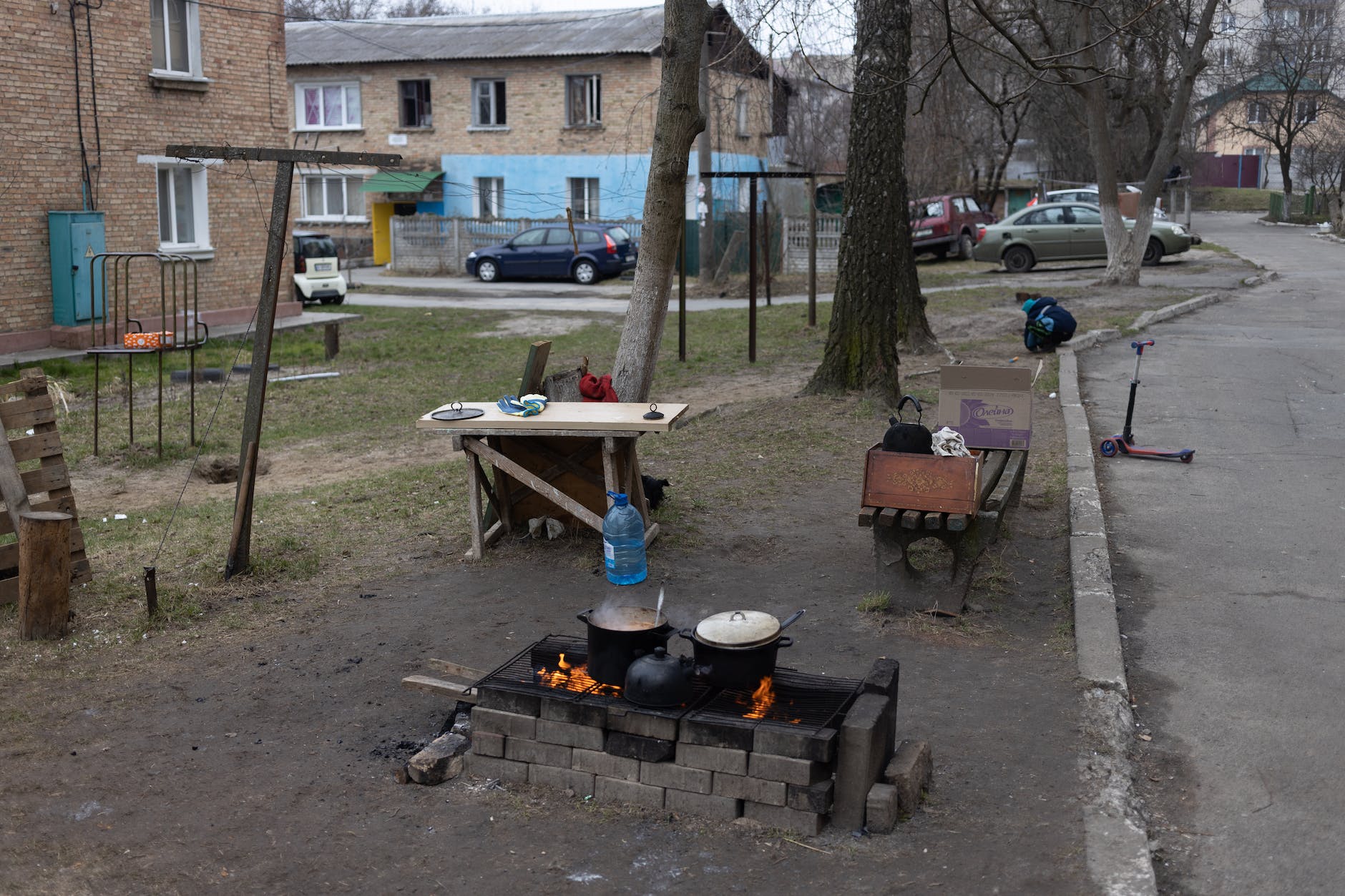I was still working two or three jobs in 2016 when I wrote the first draft of this essay. At the time, I believed things would eventually improve for me, career-wise. But I was wrong, and not because of anything I had done: the economy was rigged. This essay was a way for me to vent my frustrations, but also to reframe my perspective about the economy and my place in it. After reading Barbara Ehrenreich’s book, Bright-Sided (2010), I decided to try my own version of positive thinking…
Blessed are the Poor: Reframing economic oppression in America
My life is the poster child for everything that has gone wrong in the American economy since 2007 or so. In 2012, it finally dawned on me that all of my efforts to achieve job security and economic stability had paid off in a steady downward spiral into the terrifying abyss of chronic poverty.
To use a recently coined term, I had joined the ranks of the precariat class, and through no fault of my own. On the contrary. I had been working very hard to improve my economic status after a no-fault divorce in mid-life left me no choice but to start over again. I spent years earning a graduate degree while investing my talents in a demanding job that should have rewarded my efforts but didn’t, due to the new gig economy.
Even worse: While I worked for bare cost-of-living raises at a university from 2005-2008, the president of that university and his sidekick were embezzling the money they were not using to provide fair wages for the university staff. They eventually were caught and forced to resign, but it was too late for those of us who had been denied fair pay raises.
I left that office cubicle in search of a better situation, only to find that Walmartization had taken over the higher education sector as well. In 2011, I landed my dream job as a TESOL professional in a university Intensive English department. At the time of hire, the director held out the incentive of full-time status with benefits after a year. But after that year was up, the director wanted me to keep up my end of the contract but reneged on hers. “I’m sorry, we can’t offer you health insurance. It’s the economy,” was all she said. (I did not stay a second year; I could not afford to pay for private health insurance. This was before Obamacare.)
At about this time, after experiencing the reality of the declining middle class, I read Barbara Ehrenreich’s book, Bright-Sided. A journalist who has written several books about the rise of inequality in our economic system, Ehrenreich also investigated the trends that have popped up to keep the masses confused and helpless. In her 2010 book, she posits that the American creed of positive thinking is a handy cover-up for the bad things happening in our economy and society. She observes that positive thinking is most popular in American businesses, turning the blame on employees for “not trying hard enough” if they fail to succeed in their careers. According to Ehrenreich, positive thinking “was a useful message for employees, who by the turn of the twenty-first century were being required to work longer hours for fewer benefits and diminishing job security.”
That was me. I watched what was happening, systematically, to favor the corporations and defraud the middle class. But I was done with trying to convince myself to smile: I was filled with outrage and despair. If this type of economic policy continued unchecked, the future didn’t look bright for me, or for anyone but the ruling class.
The current economic system is indeed rigged toward the rich and against everyone else. So why isn’t anything changing to correct this? Instead, we now have the Federal Reserve toying with the economy by making things even worse for the disenfranchised. One millionaire capitalist, Nick Hanauer, explains why. He has been speaking up about the fallacies of free enterprise for years. In one of his TED talks, “The dirty secret of capitalism – and a new way forward,” Hanauer claims our neo-liberal capitalistic economy was created to benefit not the people, but the 1%, and is not at all scientific or trustworthy.
But back in 2016 (when I first drafted this essay), all I knew was there was something very wrong with our capitalistic economy and that I was just one person, powerless to change it. One thing I could do, though, was to stop going along with the lie. So I invented a new version of the Glad Game: Blessed are the poor.
Blessed are the poor: I would be a happy poor person. Why not? We are here to stay, so it’s about time we learned to be happy about it. But I would not be happy with my non-living wages or job insecurity: I would be happy by shifting my sights away from the American Dream and toward simple gratitude.
From the Beatitudes
For those of you not familiar with this phrase, “Blessed are the poor in spirit (humble),” it comes from the Beatitudes, a famous teaching given by Jesus to a large crowd of people early in his ministry. “Blessed are the poor in spirit” has a clause: “for theirs is the kingdom of heaven.”
Jesus had a lot to say about poor and rich people. He was a very practical spiritual leader. Jesus also said, “It is better to give than to receive. Give, and it shall be given unto you…to fill your heart to bursting.” Acts of generosity make you feel like a million bucks; creating, as Steven Covey coined long ago, a win-win situation.
Rich and powerful people did not like Jesus, not at all. In fact, the religious rulers of that era hated him, and finally succeeded in killing him. All because Jesus told them that what they were doing was wrong.
Jesus spent a lot of time criticizing the rich and the rulers for holding onto their money, for “devouring widow’s houses” and oppressing the poor. While he was telling the poor that they were blessed for knowing the secret that life isn’t all about money, he was warning the rich that “it is easier for a camel to go through the slit in the Needle Gate than for a rich man to enter the kingdom of heaven.” Why? Because the more stuff you accumulate, the harder you hold onto it.
Teach your children
I come from a long line of Scotch-Irish Presbyterians. But far from being greedy tightwads, my parents were kind and generous people. Throughout my childhood, I saw them give money (I’m talking checks for thousands of dollars) to neighbors who needed help, and donate their time and talents to the community with no strings attached.
When my grandmother sold her home and furniture in order to go into assisted living at the age of 87, she fretted about only being able to take a few items of furniture with her. My father said something to Grandma to remind her of life’s ultimate purpose: “Mom, you can’t take it with you.” He was not referring to the obvious—she couldn’t take all her stuff to the nursing home—but to a universal truth: It’s time to let go. Life is not about how much stuff we have: it’s about letting go. And it’s about people. People matter, not stuff.
The first Christian rule
My father told me that Jesus was the first Communist. This may sound radical, but in fact Dad was right. Jesus didn’t force rich people to give away their money, but every time a wealthy man asked Jesus what he should do to become perfect, Jesus told him, “Sell all you have and give to the poor, and you shall have treasures in heaven.”
Jesus was definitely not a capitalist. Yes, Jesus instructed servants to invest their talents (spiritual gifts, not money) in order to receive multiple returns, and to be wise in money matters. But he did not tell people to exploit one another for personal gain. What would Jesus think of Christian businesspeople today who oppress their workers for the sake of corporate profit?
Just for the record, neo-liberal (also called gonzo and pernicious) capitalism goes against every fiber of the Golden Rule.
After Jesus left his disciples and went back to Heaven, these mere mortals had to figure out what to do next. These first followers of Jesus modeled their lives according to the Jewish Torah, as well as to what Jesus had taught them (which was also according to the Torah, with some new twists). Jewish law was all about justice: farmers had to leave some of their crops for the poor; widows and orphans were looked after by the community; and every 50th year was a Jubilee, the year when all debts were forgiven and slaves were set free. Imagine that.
But during His ministry, Jesus taught something new, something exclusively for rich people: “Sell all you have and give that money to the poor.”
It has been said that the first thing the early Christians did was to eliminate poverty and hunger in the world by redistributing wealth.
These early Christians decided to follow Jesus’s commandment: if someone wanted to join their group, they had to sell their possessions so the money could be used to support a communal lifestyle. If a new group of Christians needed help, a group that had extra stuff was instructed to share it with the less privileged group. A plan was devised to distribute food to the widows and the poor every day (the first soup kitchen and food pantry).
This worked very well for a while, but as usual—just as was the case during Jesus’s ministry—the ruling class wanted a piece of the action, so they took over. It seemed that faith didn’t, and still doesn’t, translate well when interpreted by a human institution.
Poor People Matter
Back to the Glad Game. If the poor are here to stay, maybe it’s time for a new economy: an economy of the happy poor. If accumulating lots of stuff, claiming special treatment according to financial “merit,” and marginalizing the disadvantaged are not what life is really about, then good riddance! It’s about time.
Onward we march toward what truly matters. Let’s eliminate the plague of social isolation by caring about people. Let’s share our spare bedrooms with neighbors and friends whose unemployment benefits were terminated. And who needs their own car or personal washing machine? European countries have been appliance-sharing for decades. Save electricity: hang those clothes outside to dry—in the vegetable garden. Fast foods are killing us, so let’s just stop eating them. Walmart and Amazon notoriously oppress their workers, so let’s just not buy anything from these corporations.
Think—no, don’t think about all the money you’ll save—think of all the money you won’t need.
Eat humble pie, and ask for seconds. If the American economy is consumer-driven, let’s stop being consumers and see what happens to Wall Street. The economy of oppression can’t thrive without people to oppress. The wave of the Great Resignation has just begun to build.
Underground economies are nothing new, but let’s bring in a better one for the 21st century. Living off the grid, the black market, and contraband, welcome back! An article in New Yorker magazine, “The Faces of Americans Living in Debt,” offers a glimpse into the faces of dozens of these newly poor who are forced to get by in some surprising ways.
Blessed are the poor, for we are growing in number.


